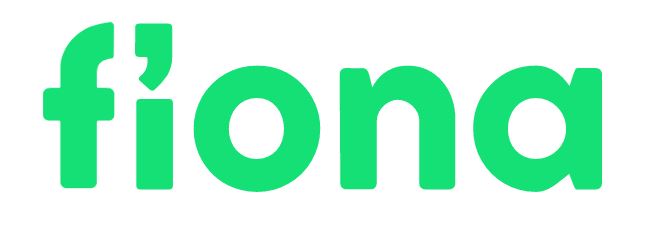Advertiser Disclosure: Many of the companies featured here provide compensation to us. This is how we maintain our free service for consumers. Compensation, along with hours of in-depth editorial research, determines where & how companies appear below.
Advertiser Disclosure: Many of the companies listed here provide compensation to us. This may influence how and where they appear.
Best Personal Loan Reviews of April 2024
Personal loans can be used to consolidate debt or make other purchases. Before applying for a loan, compare interest rates and terms from our top-rated lending partners.


- BBB A+ Rating
- No Minimum Credit Score
- Loans of $2,500 to $50,000
- APR: 3.49% to 35.99%
- Loan Terms: 3 to 120 Months
- 24 Hour Funding After Approval
- Helping Borrowers Since 1999
- BBB A Rating
- Online Marketplace
- APR: 3.49% to 35.99%
- Loans $1,000 to $100,000
- Loan Terms: 6 to 144 Months
- 24 Hour Funding After Approval
- Helping People With Bad Credit Since 1998
- Loans from $500 to $10,000
- No Minimum Credit Score
- Interest Rate Varies
- Loan Tern Varies
- 24 Hour Funding After Approval
- No Hidden Fees
The Best Personal Loan Companies of 2024
- BBB A+ Rating
- No Minimum Credit Score
- Loans of $2,500 to $50,000
- APR: 3.49% to 35.99%
- Loan Terms: 3 to 120 Months
- 24 Hour Funding After Approval
- Helping Borrowers Since 1999
Are you in need of some extra cash to cover an unexpected expense or achieve a major financial goal? A personal loan might be just what you need. Personal loans are a type of unsecured loan that can be used for a variety of purposes, from debt consolidation to home improvements. They offer borrowers a fixed amount of money that is repaid over a set period of time, with interest.
However, before you apply for a personal loan, it’s important to understand the pros and cons, different types of loans, and requirements for approval. We’ll explore everything you need to know about personal loans, so you can make an informed decision about whether a personal loan is right for you.
Personal Loan Pros and Cons
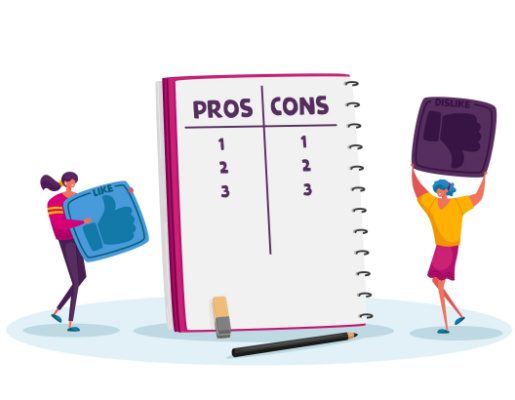 Pros:
Pros:
- Quick and easy application process: Many lenders offer online applications that can be completed in minutes.
- Flexible repayment terms: Borrowers can choose a loan term that fits their budget and financial goals.
- No collateral required: Personal loans are unsecured, which means borrowers do not have to put up any collateral to secure the loan.
- Improves credit score: If borrowers make their monthly payments on time, it can help improve their credit score.
- Competitive interest rates: Personal loan interest rates are typically lower than credit card interest rates, which can save borrowers money in the long run.
Cons:
- Higher interest rates for some borrowers: Borrowers with lower credit scores may be charged higher interest rates, which can make the loan more expensive.
- Origination fees: Many lenders charge origination fees, which can add to the overall cost of the loan.
- Risk of default: If borrowers cannot make their monthly payments, they risk defaulting on the loan, which can damage their credit score and lead to additional fees.
- Potential for scams: There are many fraudulent lenders out there, so borrowers need to be careful when choosing a lender.
- May not be the best option for some borrowers: Personal loans may not be the best option for borrowers who need a large amount of money or who have other sources of credit available to them, such as a home equity line of credit.
Different Types of Personal Loans
Here are all of the different types of personal loans that may be able to help you get the money you need:
- Unsecured personal loans: These are the most common type of personal loan and do not require any collateral. Borrowers typically receive a lump sum of money and repay the loan in fixed monthly payments over a set period of time. Unsecured personal loans are usually used for smaller expenses, such as home improvements, medical bills, or unexpected expenses.
Secured personal loans: Secured personal loans require collateral, such as a car or a house. Because the loan is secured, lenders are able to offer lower interest rates than unsecured personal loans. However, borrowers risk losing their collateral if they are unable to repay the loan.
Debt consolidation loans: Debt consolidation loans are used to consolidate multiple debts into one loan. They can be either secured or unsecured, and typically have lower interest rates than credit cards or other forms of debt. Debt consolidation loans can help borrowers simplify their payments and potentially lower their interest rates.
Co-signer personal loans: Co-signer personal loans are loans that are co-signed by another person, typically a family member or friend. Co-signers are responsible for repaying the loan if the borrower is unable to, which can help borrowers with lower credit scores or insufficient income qualify for a loan.
Payday loans: Payday loans are short-term loans that are usually due on the borrower’s next payday. They typically have very high interest rates and fees, and can trap borrowers in a cycle of debt. Payday loans are usually used for emergency expenses or unexpected bills.
Personal lines of credit: Personal lines of credit are similar to credit cards, in that borrowers can access a revolving line of credit as needed. Interest is only charged on the amount borrowed, and borrowers can repay the line of credit over time.
- Home equity loans: Home equity loans are secured loans that use a borrower’s home equity as collateral. They typically have lower interest rates than other types of personal loans, but can be risky if the borrower is unable to make payments and risks losing their home.
The type of personal loan that is best for a borrower depends on their individual financial situation and needs. It’s important for borrowers to research their options and choose a loan that fits their budget and financial goals.
What Are Personal Loans?
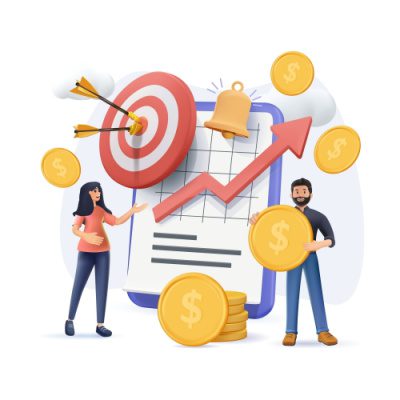 Personal loans are a type of loan that can be used for a variety of personal expenses, such as home improvements, medical bills, or unexpected expenses. They are typically unsecured, meaning that no collateral is required, and are issued based on a borrower’s credit score, credit history, and other factors. Personal loans typically have fixed monthly payments and a set loan term, which can range from a few months to several years.
Personal loans are a type of loan that can be used for a variety of personal expenses, such as home improvements, medical bills, or unexpected expenses. They are typically unsecured, meaning that no collateral is required, and are issued based on a borrower’s credit score, credit history, and other factors. Personal loans typically have fixed monthly payments and a set loan term, which can range from a few months to several years.
Interest rates on personal loans can vary depending on the borrower’s credit score, credit usage, and other factors. Some lenders may charge origination fees or other fees associated with the loan. To be approved for a personal loan, borrowers typically need a minimum credit score, a sufficient income, and a responsible credit history. The actual loan terms for personal loans depend on the lender and the borrower’s creditworthiness.
Personal loans come in two main types: secured and unsecured loans. Secured loans require collateral, such as a car or house, to secure the loan. This means that if the borrower defaults on the loan, the lender can seize the collateral to recoup their losses. Unsecured loans, on the other hand, do not require collateral and are typically based on the borrower’s creditworthiness and ability to repay the loan.
When applying for a personal loan, lenders will typically perform a soft credit inquiry to determine the borrower’s creditworthiness. This means that the inquiry will not affect the borrower’s credit score. However, if the borrower is approved for the loan, the lender may perform a hard credit inquiry, which can temporarily lower the borrower’s credit score.
Personal loan lenders come in many different forms, from traditional financial institutions like banks and credit unions to online lenders. It’s important to do your research and compare different lenders to find the best rates and terms for your needs. Make sure to choose an equal housing lender to ensure that you are not discriminated against based on your race, gender, or other factors.
To be approved for a personal loan, borrowers typically need to have a good credit score and credit history, as well as sufficient income to repay the loan. Auto loans, for example, are a type of personal loan that is specifically designed for purchasing a car. To get the most favorable loan terms, borrowers with fair credit or lower may want to consider a joint loan with a co-borrower who has a higher credit score.
Financial institutions may require borrowers to verify their bank account information before approving a personal loan. This is to ensure that the borrower has a valid bank account and to set up direct payment for the loan. Personal loan rates can vary based on factors such as credit score, loan amount, and loan term. APRs and origination fees may also apply, so it’s important to read the loan terms carefully.
Universal credit, also known as income-based credit, is a type of government benefit that provides financial assistance to individuals and families with low income. Borrowers who receive universal credit may still be eligible for a personal loan, but may need to meet additional requirements such as minimum income or credit eligibility.
When applying for a personal loan, borrowers can expect the loan process to take several business days. Fully amortizing personal loans have fixed monthly payments that cover both the principal and interest, ensuring that the loan will be paid off in full by the end of the loan term. Loan term lengths range from a few months to several years, depending on the lender and loan purpose.
How Do Personal Loans Work?
Personal loans work by providing borrowers with a lump sum of money that they can use for a variety of personal expenses. When a borrower applies for a personal loan, the lender will evaluate their credit score, credit history, income, and other factors to determine whether they are eligible for the loan and what interest rate they will be charged.
If the borrower is approved for the loan, they will receive the funds in a lump sum and begin making fixed monthly payments to repay the loan over a set loan term, which can range from a few months to several years. The interest rate on the loan is typically fixed, meaning it does not change over the life of the loan.
Personal loans can be either secured or unsecured. Secured personal loans require collateral, such as a car or a house, which the lender can seize if the borrower is unable to repay the loan. Unsecured personal loans do not require collateral, but may have higher interest rates.
A fixed rate loan has an interest rate that does not change over the life of the loan, making it a predictable option for borrowers. Credit eligibility for a personal loan may depend on factors such as credit score, credit history, and minimum annual income requirements. Origination fee ranges can vary by lender, so it’s important to shop around for the best deal.
Actual loan terms depend on a variety of factors, including the borrower’s creditworthiness, income, and loan purpose. A soft credit pull may be used to determine loan eligibility, but will not impact the borrower’s credit score. Borrowers will need to pay interest on the loan, and those with below average credit may be charged higher interest rates.
An installment loan is a type of personal loan that is repaid over time through fixed monthly payments. Personal loans can be issued for a variety of purposes, from auto loans to credit card consolidation. Online lenders may offer a more streamlined loan process, but borrowers should ensure that the lender has sufficient investor commitment and is reputable.
When borrowers make their monthly payments on time, it can help improve their credit score. If they miss payments or default on the loan, it can damage their credit score and lead to additional fees and penalties.
Overall, personal loans can be a useful tool for borrowers who need to finance personal expenses. It’s important for borrowers to understand the terms and conditions of the loan and ensure that they can afford to make the monthly payments before applying for a personal loan.
What Are The Requirements for Getting a Personal Loan?
The requirements for getting a personal loan can vary depending on the lender and the borrower’s creditworthiness, but there are some general requirements that most lenders will look for, including:
Credit score: Personal loans are typically issued to borrowers with good or excellent credit scores, although some lenders may offer loans to borrowers with fair or poor credit scores. Generally, a credit score of 650 or higher is considered good enough to qualify for a personal loan.
Credit history: Lenders will also look at a borrower’s credit history, including their payment history, outstanding debts, and length of credit history. Borrowers with a responsible credit history are more likely to be approved for a personal loan.
Income: Lenders will evaluate a borrower’s income to determine whether they have the financial capacity to repay the loan. Borrowers with a stable income and a low debt-to-income ratio are more likely to be approved for a loan.
Employment history: Some lenders may require borrowers to have a steady job or a certain length of employment history to qualify for a loan.
Bank account: Most lenders will require borrowers to have an active bank account in order to receive loan funds and make monthly payments.
Citizenship or residency status: Lenders may require borrowers to be US citizens or permanent residents to qualify for a personal loan.
Age: Borrowers must be at least 18 years old to be eligible for a personal loan.
It’s important for borrowers to check with individual lenders to understand their specific eligibility requirements before applying for a personal loan.
How Much Can You Borrow with a Personal Loan?
The amount that you can borrow with a personal loan varies depending on the lender and your creditworthiness. Generally, personal loan amounts range from a few thousand dollars to tens of thousands of dollars.
Some lenders may have minimum loan amounts, such as $1,000 or $2,000, while others may have maximum loan amounts of $50,000 or more. The maximum loan amount that you can qualify for depends on several factors, including your credit score, income, debt-to-income ratio, and other financial factors.
To determine how much you can borrow with a personal loan, you can use an online loan calculator or contact a lender directly to get a quote. It’s important to borrow only what you need and ensure that you can afford to make the monthly payments on the loan, including any interest and fees.
What is The Average Interest Rate for a Personal Loan?
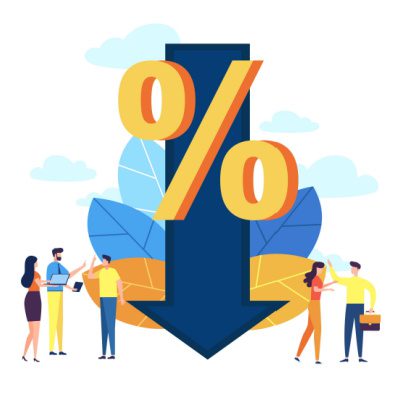 The average interest rate for a personal loan varies depending on several factors, including the borrower’s credit score, credit history, loan amount, loan term, and the lender’s policies. According to recent data from Bankrate, the average interest rate for a 24-month personal loan in the United States was 9.34% as of January 2022. However, rates can range from as low as 2.49% for borrowers with excellent credit to as high as 36% for borrowers with poor credit.
The average interest rate for a personal loan varies depending on several factors, including the borrower’s credit score, credit history, loan amount, loan term, and the lender’s policies. According to recent data from Bankrate, the average interest rate for a 24-month personal loan in the United States was 9.34% as of January 2022. However, rates can range from as low as 2.49% for borrowers with excellent credit to as high as 36% for borrowers with poor credit.
It’s important for borrowers to shop around and compare rates from multiple lenders to find the best interest rate and terms for their personal loan. Additionally, borrowers with excellent credit may be able to qualify for lower interest rates and more favorable loan terms, such as longer loan terms or higher loan amounts.
What is the Loan Term for a Personal Loan?
The loan term for a personal loan varies depending on the lender and the borrower’s preferences. Personal loan terms typically range from 12 months to 84 months (7 years). However, some lenders may offer shorter or longer loan terms, depending on their policies and the borrower’s creditworthiness.
The loan term that you choose can affect your monthly payments and the total amount of interest that you pay over the life of the loan. Generally, longer loan terms result in lower monthly payments, but higher total interest costs, while shorter loan terms result in higher monthly payments, but lower total interest costs.
When choosing a loan term for a personal loan, it’s important to consider your financial situation, including your income and expenses, and choose a term that allows you to make affordable monthly payments while minimizing the total interest paid.
What is the Origination Fee for a Personal Loan?
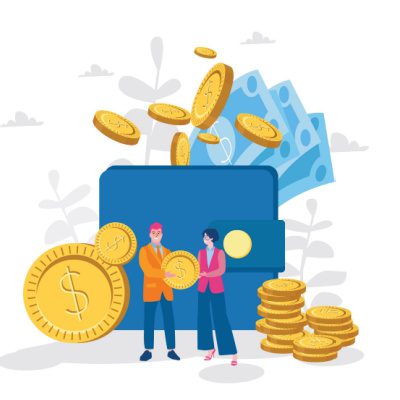 An origination fee is a fee that some lenders charge to process a loan application and disburse loan funds. The origination fee is typically a percentage of the loan amount, and it can range from 0% to 8% of the loan amount, depending on the lender and the loan product.
An origination fee is a fee that some lenders charge to process a loan application and disburse loan funds. The origination fee is typically a percentage of the loan amount, and it can range from 0% to 8% of the loan amount, depending on the lender and the loan product.
The origination fee is usually deducted from the loan proceeds before they are disbursed to the borrower, so the borrower receives the loan amount minus the origination fee. For example, if a borrower takes out a $10,000 personal loan with a 3% origination fee, the lender would deduct $300 from the loan proceeds, and the borrower would receive $9,700.
It’s important for borrowers to consider the origination fee when comparing loan offers from different lenders, as a higher origination fee can increase the total cost of the loan. However, borrowers should also consider other factors, such as the interest rate, loan term, and any other fees, when choosing a lender and loan product.
How do Personal Loans Affect Your Credit Score?
Personal loans can have both positive and negative effects on your credit score, depending on how you manage the loan.
One of the main factors that affects your credit score is your payment history. Making on-time payments on your personal loan can help improve your credit score, as it shows lenders that you are a responsible borrower. Late payments, on the other hand, can have a negative impact on your credit score, as they can indicate that you are a high-risk borrower.
Another factor that affects your credit score is your credit utilization, which is the amount of credit you are using compared to your total available credit. Taking out a personal loan can increase your total available credit, which can lower your credit utilization and improve your credit score. However, if you use the loan to accumulate more debt, your credit utilization may increase, which can have a negative impact on your credit score.
Finally, applying for a personal loan can result in a hard inquiry on your credit report, which can temporarily lower your credit score. However, if you are approved for the loan and make timely payments, the positive impact on your credit score may outweigh the negative impact of the hard inquiry.
Personal loans can have a significant impact on your credit score, and it’s important to carefully consider your options and manage your loan responsibly to ensure that it has a positive effect on your credit standing.
What is the Minimum Credit Score Required to Get a Personal Loan?
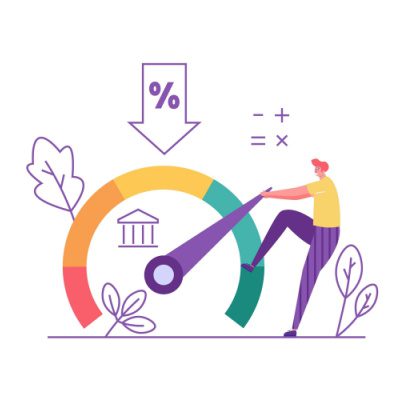 The minimum credit score required to get a personal loan varies depending on the lender and the loan product. Generally, borrowers with higher credit scores are more likely to qualify for personal loans with favorable terms and lower interest rates, while borrowers with lower credit scores may have fewer options and may be subject to higher interest rates and fees. Credit products are subject to credit approval and may be subject to sufficient investor commitment.
The minimum credit score required to get a personal loan varies depending on the lender and the loan product. Generally, borrowers with higher credit scores are more likely to qualify for personal loans with favorable terms and lower interest rates, while borrowers with lower credit scores may have fewer options and may be subject to higher interest rates and fees. Credit products are subject to credit approval and may be subject to sufficient investor commitment.
Some lenders may have minimum credit score requirements for personal loans, such as a score of 580 or above, while others may not have a specific minimum requirement but may consider factors such as credit history, income, and employment when evaluating loan applications.
It’s important for borrowers to review the lender’s requirements and credit policies before applying for a personal loan, as well as to check their own credit score and credit report to ensure that they are likely to qualify for the loan and to identify any potential issues or errors that may need to be addressed.
Can you Get a Personal Loan with Bad Credit?
Yes, it is possible to get a personal loan with bad credit, but it may be more challenging and come with higher interest rates and fees. Lenders typically consider credit scores when evaluating loan applications, as a lower credit score can indicate a higher risk of default. However, some lenders specialize in providing personal loans to borrowers with bad credit, and there are several options that borrowers can consider:
Secured personal loans: Some lenders may offer secured personal loans, which require collateral such as a car, home equity, or savings account. Secured loans may be easier to qualify for with bad credit, but the borrower risks losing their collateral if they fail to repay the loan.
Co-signer: A borrower with bad credit may be able to qualify for a personal loan by having a co-signer with good credit co-sign the loan. The co-signer is responsible for repaying the loan if the borrower defaults.
Online lenders: Online lenders may be more willing to offer personal loans to borrowers with bad credit, as they often use alternative underwriting methods and have less stringent requirements than traditional banks.
Credit unions: Credit unions may be more willing to work with borrowers with bad credit, as they are non-profit organizations that focus on serving their members rather than maximizing profits.
Improve credit score: A borrower with bad credit can work on improving their credit score by paying bills on time, paying down debt, and disputing any errors on their credit report. Improving their credit score can increase their chances of getting approved for a personal loan with more favorable terms.
Another benefit of personal loans is that they can be used for a variety of purposes. For example, secured loans can be used to finance a car purchase, while unsecured loans can be used for home improvements, debt consolidation, or other personal expenses. Additionally, many personal loan lenders offer joint loans, which allow multiple borrowers to apply for a loan together, increasing the chances of approval and potentially qualifying for more favorable loan terms.
While it may be more challenging to get a personal loan with bad credit, there are options available for borrowers to consider. It’s important to carefully evaluate the terms and requirements of different lenders and loan products to find the best option for your financial situation.
How Long Does It Take To Get Approved For A Personal Loan?
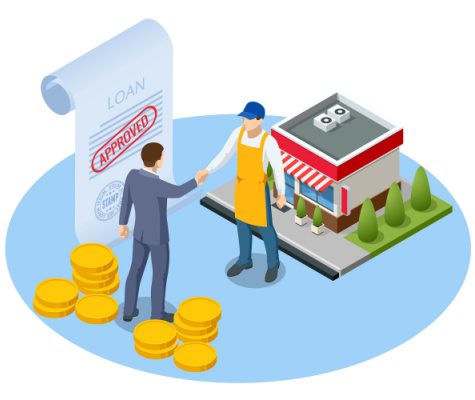 The time it takes to get approved for a personal loan can vary depending on several factors, including the lender, the loan product, and the borrower’s application and credit history. In general, some lenders may offer same-day or next-day loan approvals, while others may take several days or even weeks to process an application.
The time it takes to get approved for a personal loan can vary depending on several factors, including the lender, the loan product, and the borrower’s application and credit history. In general, some lenders may offer same-day or next-day loan approvals, while others may take several days or even weeks to process an application.
To expedite the loan approval process, borrowers can take several steps:
Ensure that they meet the lender’s eligibility requirements and have all the necessary documentation ready to submit with their application.
Shop around and compare rates and terms from multiple lenders to find the best option for their needs.
Consider applying for pre-approval, which can provide an estimate of the loan amount and interest rate the borrower may qualify for based on their credit profile and income.
Provide accurate and complete information on their application, including their personal information, employment history, and financial information.
Respond promptly to any requests for additional information or documentation from the lender.
Sign up for direct deposit and electronic payments, which can speed up the loan funding process.
When applying for a personal loan, borrowers will need to provide personal and financial information, including proof of income and employment, bank account verification, and credit history. Lenders will review this information to determine the borrower’s credit eligibility and decide whether to approve the loan request. Some lenders may perform a soft credit inquiry, which does not affect the borrower’s credit score, while others may require a hard credit pull, which can have a temporary negative impact on credit scores.
It’s important to note that personal loan rates can vary depending on the borrower’s credit score, income, loan purpose, and other factors. Additionally, some lenders may charge origination fees or other fees in addition to the interest rate. Borrowers should carefully review the terms and conditions of the loan agreement, including any APRs and origination fees, before accepting the loan.
It’s also important to note that many personal loan lenders are equal housing lenders, meaning they do not discriminate against borrowers on the basis of race, color, religion, national origin, sex, handicap, or familial status. This can provide peace of mind for borrowers who may have concerns about discrimination in the loan process.
Overall, the time it takes to get approved for a personal loan can vary, but borrowers can take steps to expedite the process and increase their chances of getting approved.
How Are Personal Loan Interest Rates Calculated?
Personal loan interest rates are typically calculated based on a combination of factors, including the borrower’s credit score, credit history, loan amount, loan term, and the lender’s policies and underwriting criteria. The interest rate on a personal loan may be fixed, meaning it remains the same throughout the loan term, or variable, meaning it may change based on market conditions or other factors.
The interest rate is expressed as an annual percentage rate (APR), which includes not only the interest charged on the loan but also any fees or charges associated with the loan, such as origination fees, late fees, or prepayment penalties. The APR provides a more accurate representation of the total cost of the loan than the interest rate alone.
To calculate the interest on a personal loan, the lender multiplies the loan balance by the interest rate and divides by the number of days in the year. For example, if a borrower takes out a $10,000 personal loan with a 10% interest rate and a five-year term, the total interest paid over the life of the loan would be $3,322.50, assuming the interest rate remains constant and no fees or charges are incurred.
It’s important for borrowers to carefully review the interest rate and APR when evaluating personal loan options, as well as any additional fees or charges associated with the loan. Shopping around and comparing rates and terms from multiple lenders can help borrowers find the most affordable loan option for their needs.
What Is The Diference Between A Secured And Unsecured Personal Loan?
 The main difference between a secured loan and unsecured loan is the presence or absence of collateral. A secured loan requires the borrower to pledge an asset as collateral, such as a car or savings account, which the lender can seize if the borrower defaults on the loan. An unsecured personal loan, on the other hand, does not require collateral and is based solely on the borrower’s creditworthiness and ability to repay the loan.
The main difference between a secured loan and unsecured loan is the presence or absence of collateral. A secured loan requires the borrower to pledge an asset as collateral, such as a car or savings account, which the lender can seize if the borrower defaults on the loan. An unsecured personal loan, on the other hand, does not require collateral and is based solely on the borrower’s creditworthiness and ability to repay the loan.
Because secured loans involve collateral, they may offer lower interest rates and larger loan amounts than unsecured loans. However, they also carry the risk of losing the collateral if the borrower is unable to repay the loan. Secured loans are often used for large purchases, such as a car or home renovation project, while unsecured personal loans are used for smaller expenses, such as medical bills or debt consolidation.
Unsecured personal loans may have higher interest rates and lower loan amounts than secured loans, but they offer the advantage of not requiring collateral and may be easier to qualify for with good credit. Unsecured personal loans can also be used for a wider range of purposes and do not require the borrower to put any assets at risk.
Overall, the choice between a secured and unsecured personal loan depends on the borrower’s financial situation, credit history, and the purpose of the loan. Borrowers should carefully weigh the advantages and disadvantages of each option before deciding which type of personal loan is right for them.
Can You Use A Personal Loan To Consolidate Debt?
Yes, personal loans can be a useful tool for debt consolidation. Debt consolidation involves taking out a new loan to pay off multiple existing debts, such as credit card balances, medical bills, or other high-interest loans. By consolidating these debts into a single loan with a lower interest rate, borrowers can save money on interest and simplify their monthly payments.
A personal loan can be used to consolidate debt because it is typically an unsecured loan that can be used for any purpose. Borrowers can use the loan proceeds to pay off their existing debts, leaving them with only one monthly payment to make on the personal loan. Personal loans for debt consolidation may offer lower interest rates than credit cards or other high-interest loans, which can help borrowers save money over the life of the loan.
When using a personal loan for debt consolidation, it’s important to consider the total cost of the loan, including any fees or charges associated with the loan, such as origination fees or prepayment penalties. Borrowers should also carefully evaluate their financial situation and make sure they can afford the monthly payments on the personal loan before applying for the loan.
Overall, using a personal loan to consolidate debt can be a smart financial move for borrowers who are struggling with high-interest debt and want to simplify their monthly payments.
What Is The Minimum Loan Amount For A Personal Loan?
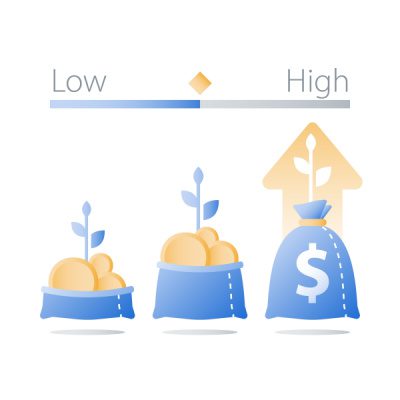 The minimum loan amount for a personal loan varies depending on the lender and the type of loan. Some lenders may have a minimum loan amount of $1,000 or less, while others may require a minimum loan amount of $5,000 or more.
The minimum loan amount for a personal loan varies depending on the lender and the type of loan. Some lenders may have a minimum loan amount of $1,000 or less, while others may require a minimum loan amount of $5,000 or more.
In general, minimum loan amounts vary, it will depend on several factors, including the lender’s policies, the borrower’s creditworthiness, and the purpose of the loan. For example, some lenders may have higher minimum loan amounts for certain types of loans, such as debt consolidation loans or home improvement loans.
It’s important for borrowers to carefully review the loan terms and requirements before applying for a personal loan to ensure they meet the lender’s minimum loan amount and other eligibility criteria. Borrowers should also consider the total cost of the loan, including any fees or charges, and make sure they can afford the monthly payments before taking out the loan.
What Is The Maximum Loan Amount For A Personal Loan?
The maximum loan amount for a personal loan varies depending on the lender, the borrower’s creditworthiness, and other factors. Some lenders may offer personal loans for as little as $1,000 or $2,000, while others may offer loans up to $100,000 or more.
The maximum loan amount for a personal loan will depend on several factors, including the lender’s policies, the borrower’s credit history and income, and the purpose of the loan. Lenders may also have different maximum loan amounts for different types of loans, such as debt consolidation loans or home improvement loans.
When considering a personal loan, it’s important for borrowers to carefully review the loan terms and requirements, including any fees or charges associated with the loan, and make sure they can afford the monthly payments. Borrowers should also compare multiple loan offers from different lenders to find the best loan terms and maximum loan amount for their needs.
Can You Pay Off A Personal Loan Early?
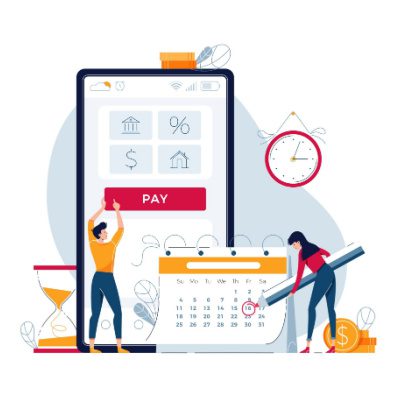 Yes, in most cases, borrowers can pay off a personal loan early without penalty. Paying off a personal loan early can be a smart financial move, as it can save borrowers money on interest over the life of the loan.
Yes, in most cases, borrowers can pay off a personal loan early without penalty. Paying off a personal loan early can be a smart financial move, as it can save borrowers money on interest over the life of the loan.
However, some lenders may charge a prepayment penalty for paying off a personal loan early. This is a fee that is assessed if the borrower pays off the loan before the end of the loan term. Prepayment penalties are less common for personal loans than they are for other types of loans, such as mortgages.
Before paying off a personal loan early, borrowers should check their loan agreement to see if there are any prepayment penalties or other fees associated with early repayment. If there are no penalties or fees, borrowers can make extra payments or pay off the loan in full at any time to save money on interest and reduce their overall debt.
What Happens If You Miss A Personal Loan Payment?
If you miss a personal loan payment, it can have several negative consequences on your credit score and financial health. The exact consequences of a missed payment will depend on the lender and the terms of your loan agreement. However, some possible consequences of missing a personal loan payment include:
Late fees: Most lenders charge a late fee if you miss a payment or make a payment after the due date. This fee can vary depending on the lender and the terms of your loan agreement.
Negative impact on credit score: A missed payment can negatively impact your credit score, making it harder for you to qualify for future loans or credit cards. Late payments can stay on your credit report for up to seven years, which can affect your credit score for a long time.
Collection calls and letters: If you miss a payment, your lender may start calling or sending letters to remind you to make the payment. These collection calls and letters can be stressful and time-consuming.
Default: If you miss multiple payments, your loan may go into default. This can have serious consequences, including legal action and wage garnishment.
If you think you might miss a payment, it’s important to contact your lender as soon as possible to discuss your options. Some lenders may offer forbearance or deferment options that can help you avoid default and stay on track with your payments.
Final Thoughts
In conclusion, personal loans can be a useful tool for borrowers who need to borrow money for a specific purpose or consolidate existing debt. With flexible repayment terms, borrower perks like autopay discounts, and the ability to apply online with online lenders, personal loans are a convenient and accessible option for many consumers. However, borrowers should carefully consider their financial situation and the loan terms before applying for a personal loan to ensure they can afford the payments and fully understand the costs associated with borrowing.
Whether you need to consolidate debt, make a large purchase, or pay for unexpected expenses, a personal loan can provide the funds you need to achieve your goals. However, it’s important to carefully consider the terms and conditions of any loan before you apply, and to make sure that you can afford the monthly payments. With responsible borrowing and timely payments, a personal loan can help you achieve your financial goals and improve your overall financial health.


